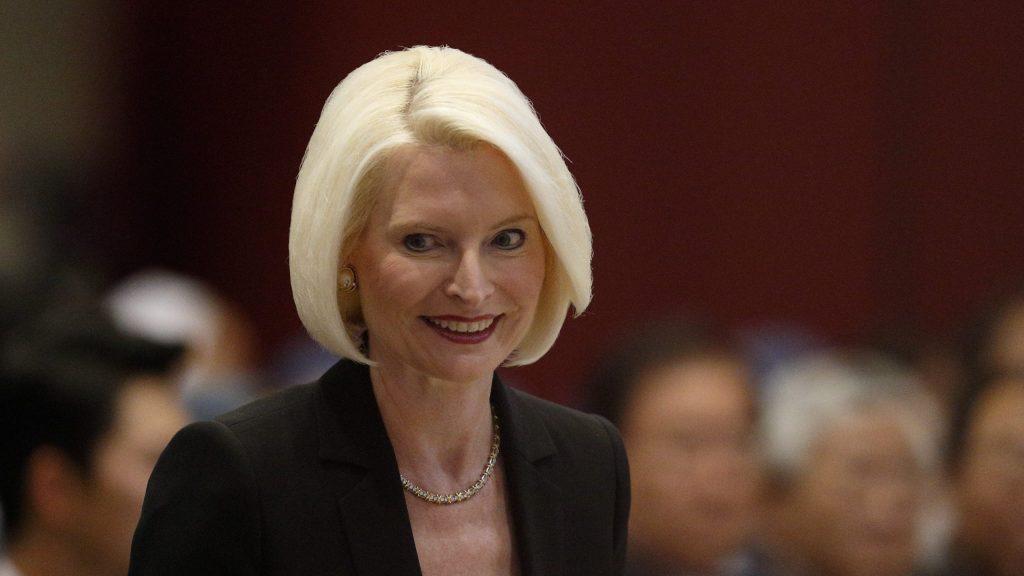The U.S. government's foreign aid agency awarded thousands of dollars in assistance to two Rome-based Catholic organizations assisting the poor in the midst of the COVID-19 pandemic in Italy.
Callista Gingrich, U.S. ambassador to the Holy See, said that USAID will award a $900,000 grant to the Community of Sant'Egidio and the International Union of Superiors General, which "are two of the finest examples of faith-based organizations that serve some of the most vulnerable populations around the world."
"Faith-based organizations are defined by an abiding sense of purpose and are dedicated to aiding those most in need," Gingrich said Dec. 3 during a virtual news conference. "They serve as lifelines for communities experiencing unprecedented hardships and as advocates for the oppressed."
The grant, she added, would allow the two organizations to continue to provide "food, clothing and personal protection equipment to the homeless, the elderly and other at-risk people."
As of Dec. 3, more than 57,000 people in Italy had died from COVID-19 and over 1.6 million people have been infected since the pandemic began, according to Worldometer, a statistical site monitoring the pandemic.
Mauro Garofalo, international relations officer for the Community of Sant'Egidio, said the USAID grant will allow the organization to "broaden our range of action to benefit those who have suffered the most from the social and economic consequences of the pandemic."
"COVID-19 has highlighted the centrality of networks of closeness and solidarity, which are even more essential today to combat the loneliness and isolation of so many people," he said. "The widespread presence of Sant'Egidio in different peripheral contexts has allowed us to respond quickly and effectively to increased needs and to intercept new demands."
Loretto Sister Patricia Murray, executive secretary of the union of superiors general of women's orders, thanked Gingrich for the embassy's support and collaboration in providing relief to people suffering due to the pandemic.
While countless religious women have helped to distribute food and supplies, as well as assist in hospitals, she said, "another reality is that many of the sisters are today among the most vulnerable because of their age and fragile health."
"They draw on their faith in Christ and they also draw on the goodness of others to help them during this difficult time. They're not living in some protected situation. They are living this current reality fully. Many elderly sisters have lived in isolation during this time even within their religious communities, often separated from those who are in active ministry and who work outside the community and must self-isolate when they return home," Sister Murray said.
During the pandemic the international union has worked to aid not only elderly religious women who are vulnerable, she said, but also "women who have been trafficked into Italy" as well as "women who have come as migrants and refugees with their young children and who are looking for support and help to build a new life."
"This collaborative initiative between Sant'Egidio and the International Union of Superiors General, supported by the U.S. government, is a shining example of goodness that can build a common project that recognizes the dignity of each person," she said.

